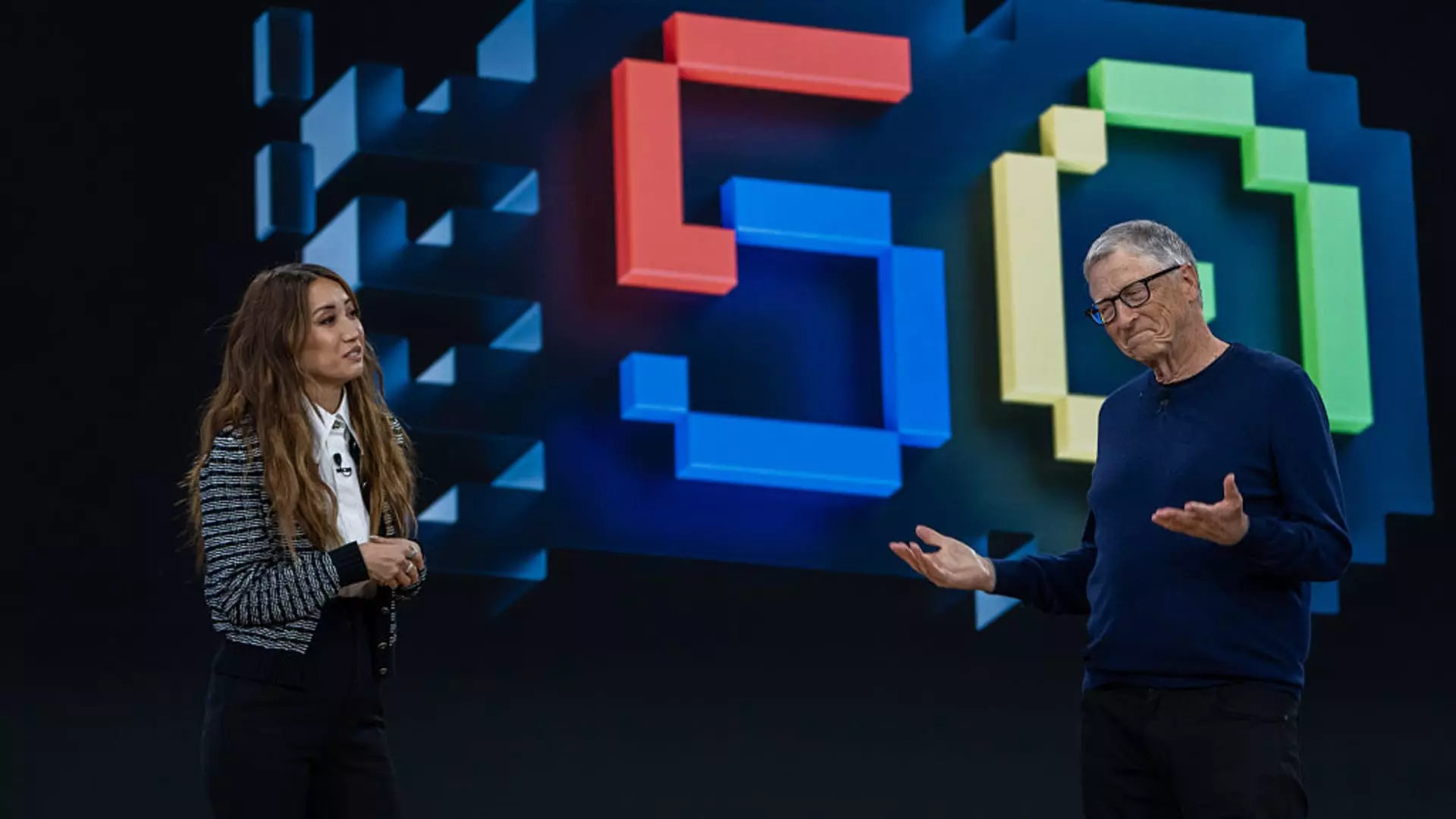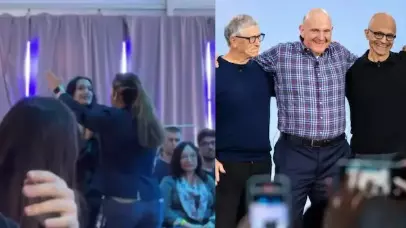
The moral courage that pierced the silence at Microsoft
text_fieldsBy now, many have heard the story: two Microsoft engineers, Ibtihal Aboussad and Vaniya Agrawal, publicly confronted their employer over its complicity in Israeli military operations in Gaza and Lebanon. Their protest—delivered directly to the faces of Microsoft’s top leadership during its 50th anniversary celebration—wasn’t just a disruption. It was a defiant act of moral courage that broke a dangerous silence in the tech industry.
Both women were fired shortly after their protests. But their actions will likely echo far longer than any corporate event ever could. At different moments during the celebration, they each took a stand: Aboussad interrupted a keynote by Microsoft AI CEO Mustafa Suleyman, demanding accountability as she declared, “How dare you celebrate when Microsoft is killing children”. Agrawal later confronted Microsoft CEO Satya Nadella, former CEO Steve Ballmer, and co-founder Bill Gates, publicly accusing the company of profiting from bloodshed in Gaza.
Their outrage wasn’t unfounded. Earlier this year, the Associated Press reported that Microsoft’s commercial artificial intelligence tools were being used by the Israel Defense Forces (IDF) in Gaza, marking one of the first known uses of U.S.-made AI models in live warfare. The AP found that Microsoft and OpenAI technologies were used to select bombing targets, power mass surveillance, and enable automated military decision-making—raising deep concerns about civilian deaths and war crimes.
Agrawal, in her company-wide resignation letter, asked: “Which ‘people’ are we empowering with our technology? The oppressors enforcing an apartheid regime? The war criminals committing a genocide?” She denounced Microsoft as a “digital weapons manufacturer” complicit in surveillance, apartheid, and genocide.
These are not rhetorical flourishes. They are claims rooted in documented collaborations, including a $133 million contract between Microsoft and Israel’s Ministry of Defence, and internal documents showing Microsoft's cloud and AI services are used for Israeli military targeting and intelligence.
When insiders expose the human cost of innovation, they force companies—and the public—to confront uncomfortable truths. This is especially important in Big Tech, where language about “empowerment” and “innovation” often masks the export of tools for surveillance and destruction.
By challenging their own employer, Aboussad and Agrawal made it harder for Microsoft, or any other firm, to claim plausible deniability. And more crucially, they gave cover to others who may want to speak but fear reprisal. “Don’t stop speaking up,” Agrawal urged colleagues in her farewell message.
The ripple effect is already visible. Their protest was livestreamed and widely shared, and they’ve become rallying figures for the No Azure for Apartheid campaign. Aboussad’s subsequent video calling for a global boycott of Microsoft products has further amplified their message.
One of the cruel ironies of speaking up is that consequences often come swiftly, while vindication arrives slowly. Aboussad and Agrawal were terminated under claims of “misconduct” and disruption. But being fired for standing on principle is not the end of the story - it can be the start of a more meaningful path.
Whistleblowers, activists, and conscientious objectors across history often find themselves unemployed before they find themselves heard. And yet, many have gone on to shape public discourse, influence policy, and find careers more aligned with their values. If platforms and civil society continue to rally behind these voices - as they already are - Aboussad and Agrawal may ultimately find themselves in stronger, more influential positions than before.
Microsoft's handling of this situation is a cautionary tale, not just for Big Tech, but for all institutions that place profit over principle. In firing its own engineers for raising ethical concerns about the use of its AI in what many—including UN experts—have called genocidal violence, the company sent a chilling message to its workforce and to the world: dissent will be punished, even when that dissent is grounded in human rights and international law.
Yet paradoxically, this effort to silence truth-tellers may have backfired. In trying to suppress their voices, Microsoft has only amplified their message. The protest—delivered not in anonymity, but directly to the faces of Mustafa Suleyman, Bill Gates, Satya Nadella, and Steve Ballmer—now echoes far beyond the walls of its anniversary celebration. And with each retelling, the engineers who spoke out, Vaniya Agrawal and Ibtihal Aboussad, are not seen as disruptive employees—they are seen as moral heroes.
Their stand recalls a dark chapter in corporate history. During the Holocaust, several companies—including IBM—played a documented role in enabling the Nazi regime, providing the punch card systems that facilitated census-taking, surveillance, and even the logistics of extermination. While some of these firms managed to avoid real consequences in their time, they did not escape history’s judgment. Their reputations remain tarnished to this day, taught in classrooms and memorialized in documentaries as examples of how corporations can become complicit in crimes against humanity.
But companies today won’t have the luxury of historical amnesia. In an age of whistleblowers, livestreams, and investigative reporting, complicity can no longer hide behind bureaucracy or boardroom doors. The new generation of workers and consumers is not as forgiving. They are more informed, more connected, and more morally alert than ever before—and they will remember which side of history companies chose when it mattered most.
The question now confronting Microsoft—and others entangled in military AI development—is not just legal, but spiritual. Who are you becoming as a company? What future are you building? And who must pay the price for your success?
More employees are now asking: Do I want to be writing code that kills? And more consumers are asking: Is convenience worth complicity? The moral calculus is shifting. What was once hidden in procurement contracts and sanitized marketing language is now exposed to public scrutiny. The age of tech exceptionalism—where innovation could proceed unburdened by ethical consequences—is coming to an end.
Agrawal and Aboussad may have lost their jobs, but they preserved something far more valuable: their integrity. Their decision to speak out, fully aware of the professional risks, revealed not just their convictions, but their character. In doing so, they reminded us that moral courage often begins with discomfort—and ends in legacy.
In a time of institutional cowardice, they chose to protect their souls.
They did not just resign from Microsoft. They refused to code complicity.
And that choice—their refusal to be silent—may one day be remembered as the moment the tide began to turn.
(Faisal Kutty is a Toronto-based lawyer and regular contributor to The Toronto Star. His articles also appear in Newsweek, Aljazeera, Zeteo, and Middle East Eye. You can follow him on X @faisalkutty)














